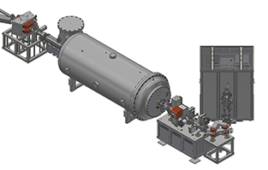With
the introduction of a new industrial manufacturing process, Bayer
MaterialScience is poised to significantly reduce energy consumption and
cut CO2 emissions. At the Chempark Krefeld-Uerdingen site, a
demonstration plant with an annual capacity of 20,000 metric tons of
chlorine has gone on stream. The oxygen depolarized cathode technology
used for this has been incorporated into the new electrolysis technology
from Uhde/UHDENORA.
The
combination of the two technologies was developed at Bayer in
Leverkusen over the past eight years. Provided the two-year large-scale
trial is successful, Bayer will gradually switch its chlorine production
to the new process. In addition, the companies will also offer the new
technology to the global market. Large German chlorine producers have
already announced their interest, as have a number of companies in the
Asia/Pacific region.
In
model calculations, experts have concluded that were the Bayer with the
Uhde/UHDENORA technology to be used only throughout Germany, it would
save enough electricity to supply a city as large as Cologne, a city
with more than one million inhabitants. This corresponds to the power
generated by a 700-megawatt power plant. Patrick Thomas is calling on
politicians to support not only the development of energy-efficient
production processes, but also to actively support the widespread
application of such technologies in industry.
Chlorine
is an essential element in today’s chemical industry. Electrochemical
chlorine production is, however, one of the most energy-intensive
processes in the chemical industry. Chlorine is used for the production
of plastics in particular and also e.g. for the manufacture of
pharmaceuticals.




